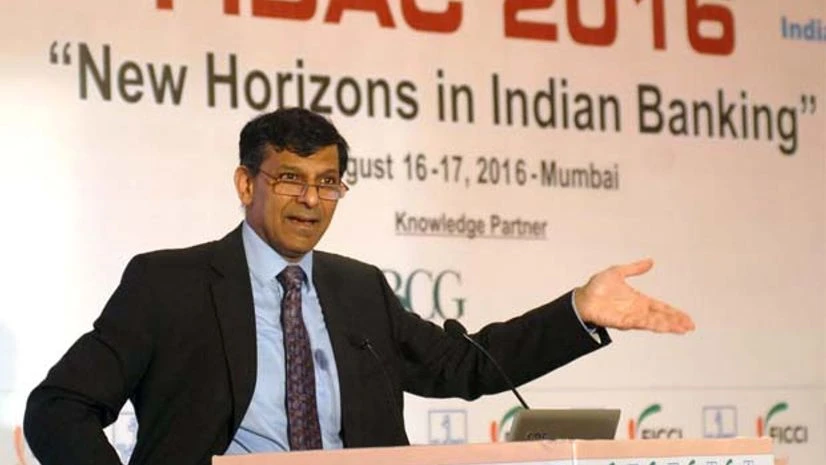Making a strong case to cut the regulatory maze surrounding public sector banks (PSBs), Reserve Bank of India (RBI) Governor Raghuram Rajan said their boards should be empowered to take all major governance decisions freely without having multiple “constituencies to satisfy”. In a lighter vein, Rajan said he felt he was “underpaid” as PSBs tend to overpay at the bottom but underpay their top executives.
Rajan, who exits office next month, also proposed withdrawing the central bank nominees from their boards.
“Today, a variety of authorities — Parliament, the Department of Financial Services (DFS), the Banks Board Bureau (BBB), the board of the bank, the vigilance authorities, and of course various regulators and supervisors including the RBI — monitor the performance of the public sector banks,” the RBI governor said in his inaugural address at the FICCI-IOBA banking conclave here on Tuesday. “With so many overlapping constituencies to satisfy, it is a wonder that bank management has time to devote to the management of the bank.”
Also Read
Flagging difficulties in getting top talent at PSBs, Rajan said: “One of the problems, of course, is that as with all public sector entities, you overpay at the bottom and underpay at the top. Yes, you feel that you are doing the job for the broader public but you just make it harder to attract top talent, specially a lateral entry.”
According to the latest data on monthly salaries made public by RBI, Rajan's total monthly emoluments stood at Rs 1,98,700 for the month of July 2015. Rajan, on-leave professor of finance at Chicago University and former chief economist at the IMF, will return to academia after his term at RBI ends in September.
The top-level salary disclosures made by the banks in their respective annual reports show a sharp difference between the total remuneration paid at the public sector and private sector entities. State Bank of India Chairman Arundhati Bhattacharya was paid about Rs 31.1 lakh in FY16, while private lender HDFC Bank’s Managing Director Aditya Puri’s total remuneration for the same period was more than 30 times higher at Rs 9.7 crore.
Rajan suggested giving rewards like employee stock ownership plans (Esops) to PSB staff by taking advantage of the current low share valuations of public lenders.
Rajan also stressed on the need to streamline and reduce the overlaps between the jurisdictions of the authorities, while specifying “clear triggers or situations” where one authority’s oversight is invoked.
Agencies like the Comptroller and Auditor General and Central Vigilance Commission should get involved only in extraordinary situations where there is evidence of malfeasance, and not when legitimate business judgement has gone wrong, he said. These suggestions should be viewed as opening a discussion rather than RBI’s formal view, he clarified.
For the finance ministry’s DFS, the nodal department for the banking sector, Rajan favoured programme-specific roles (such as for the Jan Dhan Yojana) as also coordinating and developmental roles.
On RBI, he said, it would perform a purely regulatory role and withdraw its representatives on bank boards, while adding this would require legislative change.
“Over time, RBI should also empower boards more, for instance, offering broad guidelines on compensation to boards but not requiring every top compensation package be approved,” he said.
In the interim, till the bank boards are professionalised, he favoured the mandate for this to be vested with the fledgling BBB so that it can help improve the governance and management structures at PSBs by allowing it to fully handle the appointments.
The comments assume significance in the wake of PSBs facing a huge burden of bad loans and amid calls from several quarters for professionalising their boards.
“Though the most pressing task for public sector banks is to clean up their balance sheets, a process which is well underway, a parallel task is to improve their governance and management,” Rajan said, calling for allowing the BBB to handle the entire process of appointment of the top management.

)
